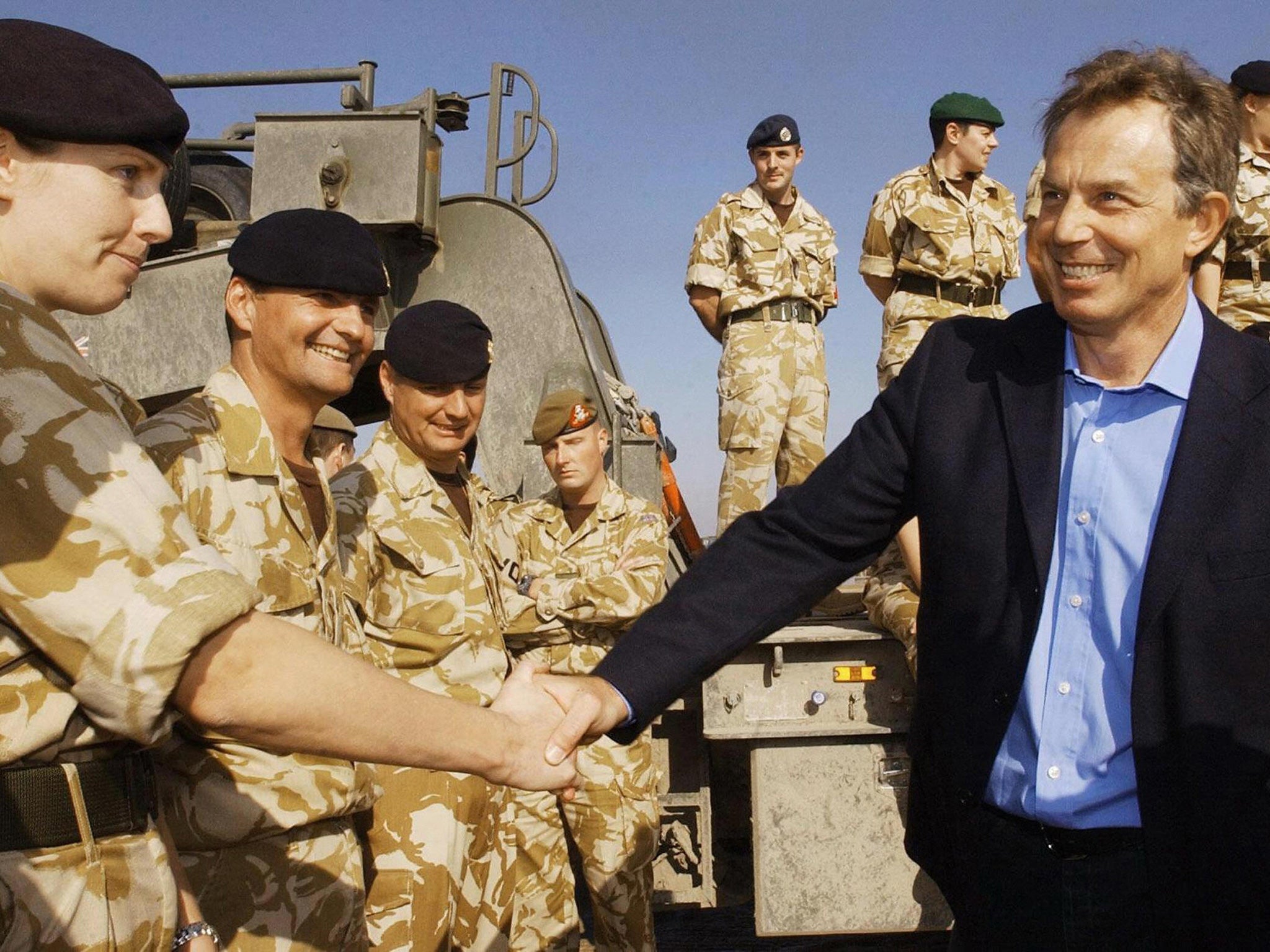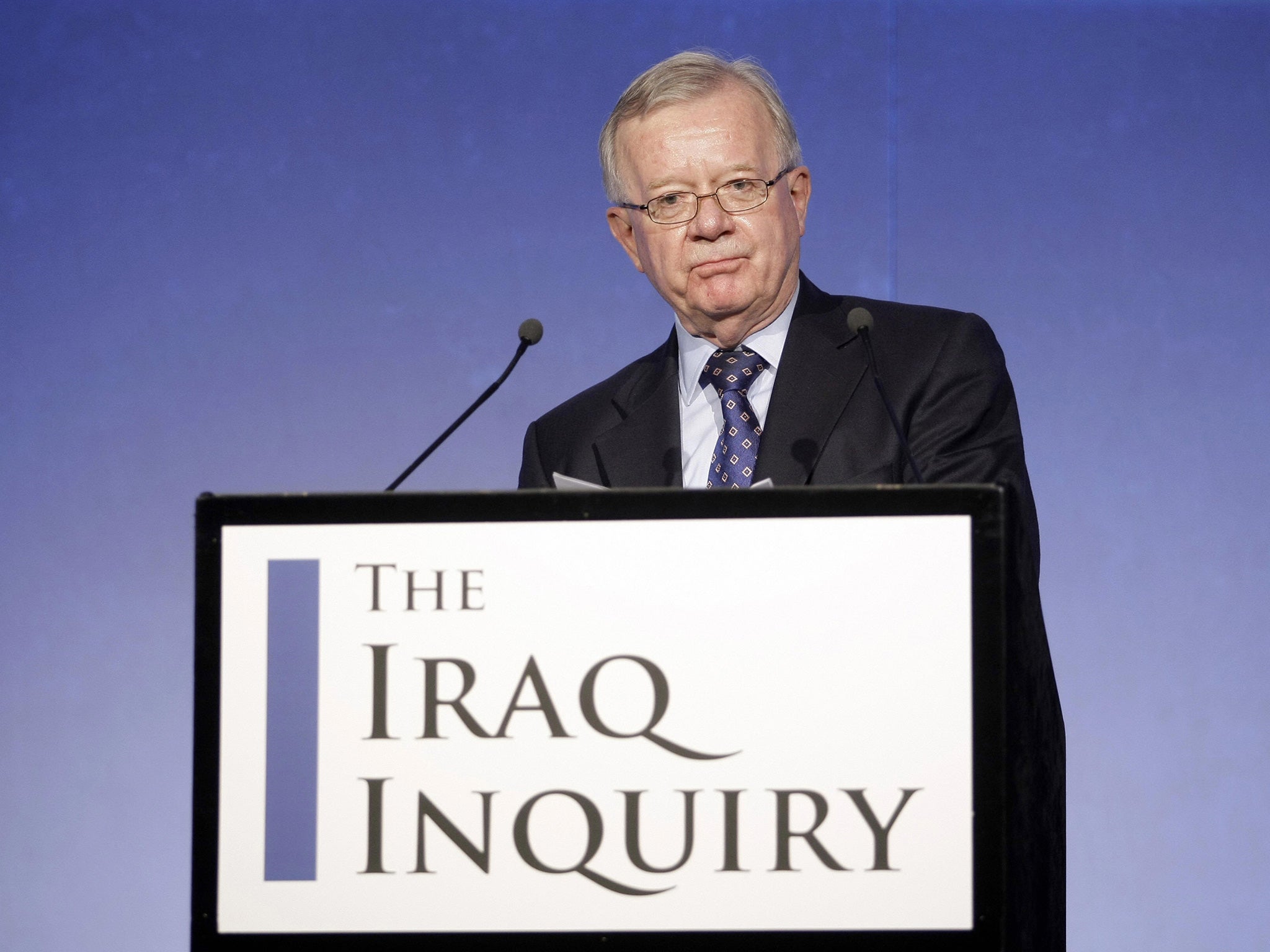Tony Blair 'misrepresented intelligence on weapons of mass destruction to gain approval for Iraq War' - UN inspector
Dr Hans Blix spoke to Peter Oborne for his alternative report into the Iraq War

Your support helps us to tell the story
From reproductive rights to climate change to Big Tech, The Independent is on the ground when the story is developing. Whether it's investigating the financials of Elon Musk's pro-Trump PAC or producing our latest documentary, 'The A Word', which shines a light on the American women fighting for reproductive rights, we know how important it is to parse out the facts from the messaging.
At such a critical moment in US history, we need reporters on the ground. Your donation allows us to keep sending journalists to speak to both sides of the story.
The Independent is trusted by Americans across the entire political spectrum. And unlike many other quality news outlets, we choose not to lock Americans out of our reporting and analysis with paywalls. We believe quality journalism should be available to everyone, paid for by those who can afford it.
Your support makes all the difference.A United Nations weapons inspector has alleged that Tony Blair “misrepresented” intelligence to secure approval for the Iraq War.
Dr Hans Blix, who was head of the UN inspection team ahead of the 2003 invasion, spoke to Peter Oborne for the journalist's alternative report into the build-up to the conflict.
His findings were published by Open Democracy as delays with the official report, headed by Sir John Chilcot, continue.

Sir John wrote a letter to the Prime Minister saying the two million-word document, covering Britain’s involvement from 2001 to 2009, will be complete by April but will need to undergo security checks before its expected release in the summer.
Mr Oborne, the associate editor of The Spectator and Telegraph's former chief political commentator, carried out his own inquiry with the BBC and Dr David Morrison.
Interviewing Dr Blix in the course of his investigations, he was told that claims about Saddam Hussein’s “weapons of mass destruction” were not an accurate representation of intelligence.
Agencies had described information on Iraq’s capabilities as “sporadic and patchy” but the then Prime Minister presented claims that the regime possessed “stockpiles of major amounts of chemical and biological weapons” were allegedly presented as fact.
“Mr Blair asserts that there were weapons, well that's an assertion and it was not supported by evidence,” Dr Blix reportedly said. “They misrepresented what we did and they did so in order to get the authorisation (for war) that they shouldn't have had”.
The inspector had told the UN Security Council that proscribed weapons were “unaccounted for” in Iraq but emphasised that “one must not jump to the conclusion that they exist” in February 2003. The invasion started three months later.
In an interview with CNN earlier this week, Mr Blair apologised for past “mistakes” in the conflict but said he would not apologise for the “fact the intelligence we received was wrong”.
“Even though (Saddam) had used chemical weapons extensively against his own people, against others, the program in the form that we thought it was did not exist in the way that we thought,” the former Prime minister added.
“I find it hard to apologise for removing Saddam. I think, even from today in 2015, it is better that he's not there than that he is there.”
According to a 2002 report by the International Institute for Strategic Studies, much of Iraq’s pre-Gulf war stocks of chemical and biological agents listed by Mr Blair would have degraded to such an extent that they would no longer be effective.
Saddam’s defected son-in-law, Hussein Kamal, also told UN inspectors that all Iraq’s proscribed weapons had been destroyed on his orders.
Mr Oborne reported that the Labour government was repeatedly warned that attacking Iraq would increase the terror threat on home soil and become a propaganda tool for extremist groups recruiting militants across the world.
HIs full findings are being broadcast tonight in Peter Oborne’s Chilcot Report, on BBC Radio 4 at 8pm.